Dear John: “I need an entry-level diesel sedan”
Story by John LeBlanc
For a lot of Canadians, spending hours in a car to get back and forth from work has become a necessary evil. But that tedium doesn’t have to cost you as much in fuel as it does with a conventional gas-powered vehicle. Which is exactly the problem I’m going to solve for this month’s Dear John letter writer.
Jim Belvedere works as an insurance adjuster in Ajax, Ont. But his home is 280-kilometre round-trip to and from Bellville, Ont., along Canada’s busiest thoroughfare: Highway 401. Jim’s been making his daily three-hour commute in his 2006 Chevrolet Equinox. And while the Chevy SUV has been comfortable on the highway and a practical vehicle for weekend outings with his two teenage daughters and wife, Jim can now afford to buy a vehicle specifically for his daily drive to his faraway office.
“I’d like to keep the Equinox as our ‘family’ car,” wrote Jim, “but I’m ready for something a bit smaller and more fuel-efficient for getting to Ajax and back everyday.”
Although Jim is looking to downsize his vehicle along with his fuel bills, he doesn’t want to make his daily drive too much of hardship. That means his new ride still has to be quiet on the highway and have enough interior space to handle his over-six-foot frame. He also wrote that his new car limit “stops at $30,000.”
Of course, Jim isn’t alone in his desire for a high-mileage set of wheels. Ever-tightening government-mandated fuel economy regulations are seeing automakers offer diesel power in more models than ever. That said, many new diesel-engine vehicles are found in upscale brands and mid- to full-sized vehicles, where the benefits of a diesel engine’s generous amount of torque and better fuel efficiency over a large displacement gasoline engine pays off. Still, diesel engines can also be found in smaller, less expensive new vehicles as well.
When it comes to offering diesels in small cars, Jim, I immediately look at a Volkswagen showroom. The German automaker offers its so-called TDI 2.0-litre turbocharged four-cylinder diesel in four compact models: the Beetle Coupe, Golf hatchback and wagon and my first recommendation for you: the Jetta sedan.
On sale since 2010, the current generation, front-wheel-drive, five-passenger four-door Jetta is VW Canada’s best-selling model. While 2014 gas models start as low as $16,385 (all prices include freight and pre-delivery inspection fees), the TDI versions with an optional dual-clutch six-speed automatic transmission start at $25,285.
Move off a VW dealer lot, Jim, and the small diesel car competition gets awfully thin. There’s the new-this-year BMW 328d xDrive sedan and wagon, but with prices starting at $49,795, the compact Bimmer diesels are a bit pricey for your budget. This leaves us with the also-new-for 2014 Chevrolet Cruze Diesel, the Jetta TDI’s only real rival.
Like the Jetta, you pay a premium for getting a diesel engine in your Cruze, Jim. In this case, the 2014 Chevrolet Cruze Diesel (which comes standard with a conventional six-speed automatic) starts at $26,545, compared to the gas-powered Cruze’s $17,595 starting price.
Both of these small diesel sedans will save you considerably more money at the pumps than your Chevy SUV, Jim. With its 140 horsepower and 236 pound-foot of torque diesel engine, the Jetta TDI is estimated to only sip 6.7 litres per 100 kilometres in the city and 4.7 on the highway. Estimated at 7.5 L/100 km in the city and 4.2 on the highway, the little Chevy diesel sedan delivers a bit more frugality on the highway, but loses its advantage to the little VW diesel sedan in the city. And despite the Cruze sporting 11 more hp and 28 more lb.-ft., both the Chevy and VW scoot from rest to 100 kilometres per hour in the 8.5 seconds range.
So far on paper Jim, the Cruze and Jetta diesel sedans are neck-and-neck. But because you’ll be spending so much time in your next new car, it’s important to take into accent some of the intangibles no spec sheet can measure. Which is why I’m recommending the Jetta TDI for your next new diesel-powered commuter sedan.
Compared to the relatively loose feel from the Cruze’s helm, the Jetta’s steering feels more tied to the road. Plus the VW’s body structure feels more solid and its ability to absorb bumps seems higher than in the Chevy. And whether you’re accelerating or simply cruising along at highway speeds, the VW’s diesel is noticeably quieter than the Chevy’s mill.
I also believe the Jetta’s interior is easier to use and feels more expensive than its mid-$20k price suggests. While both cars interiors are swathed in plastic, the Jetta’s plastic looks and feel less like, well, plastic.
For the hours you’ll be spending plying the 401, Jim, you’ll be happiest in the 2014 Volkswagen Jetta TDI.
This article was originally published at Driving.ca





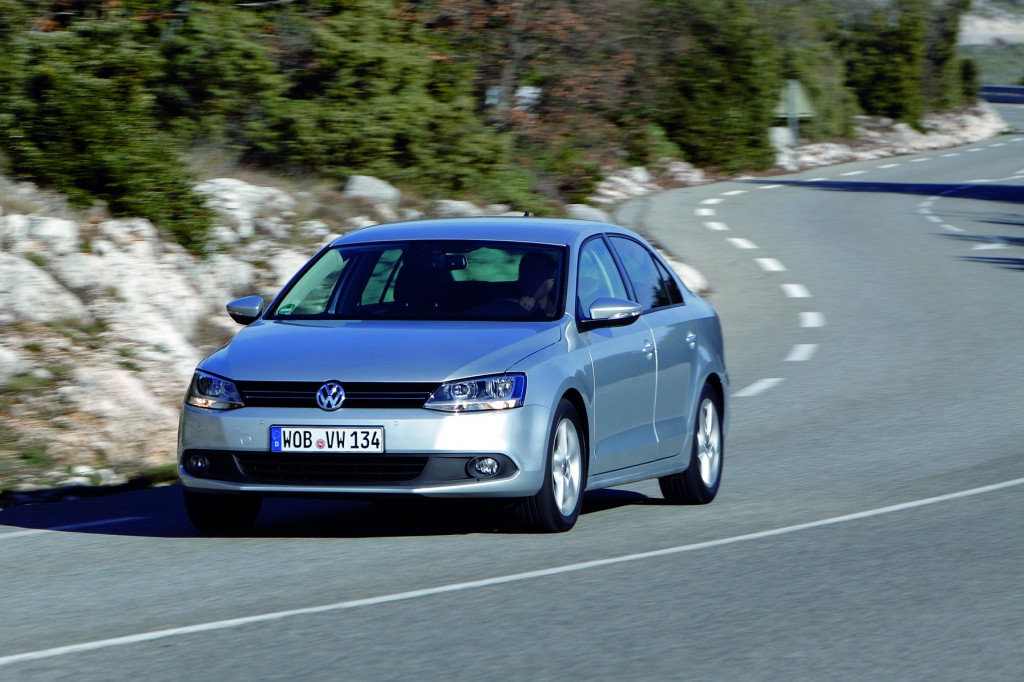
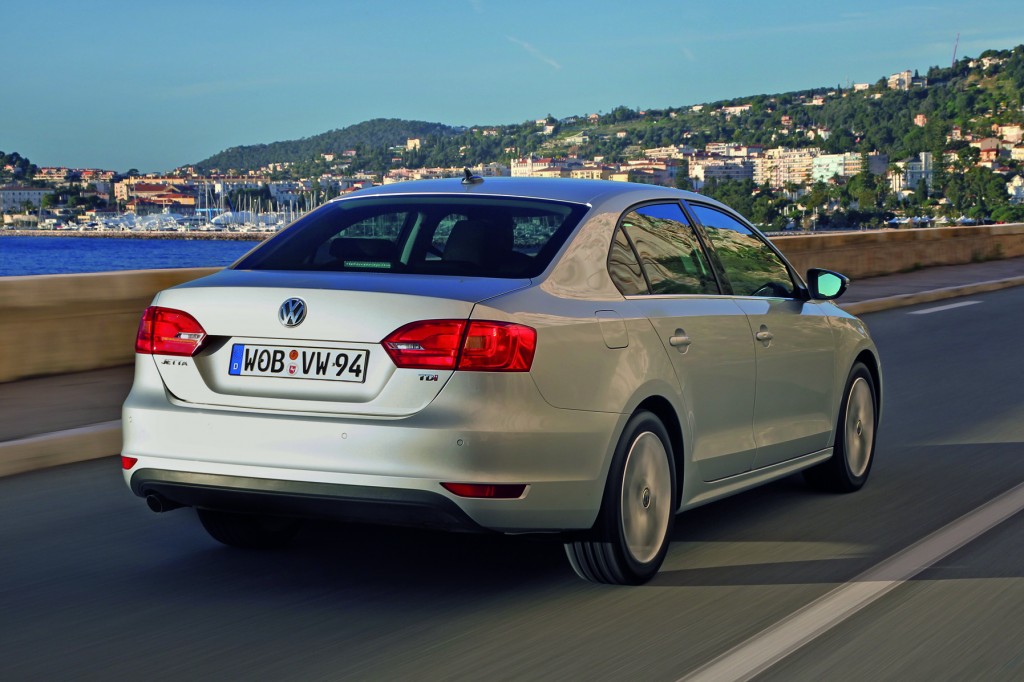
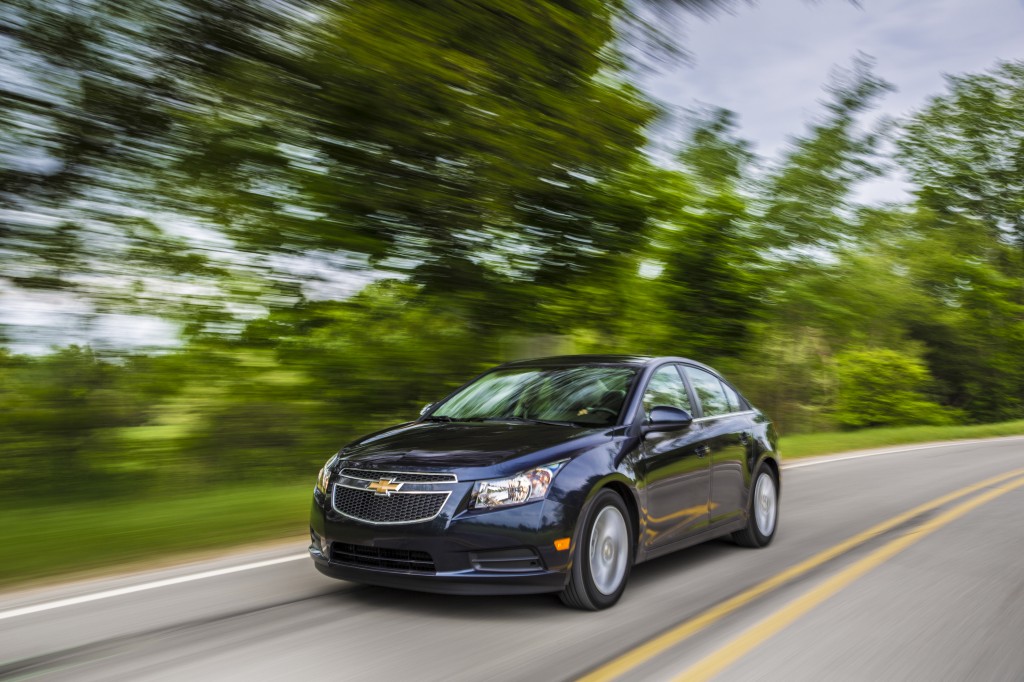
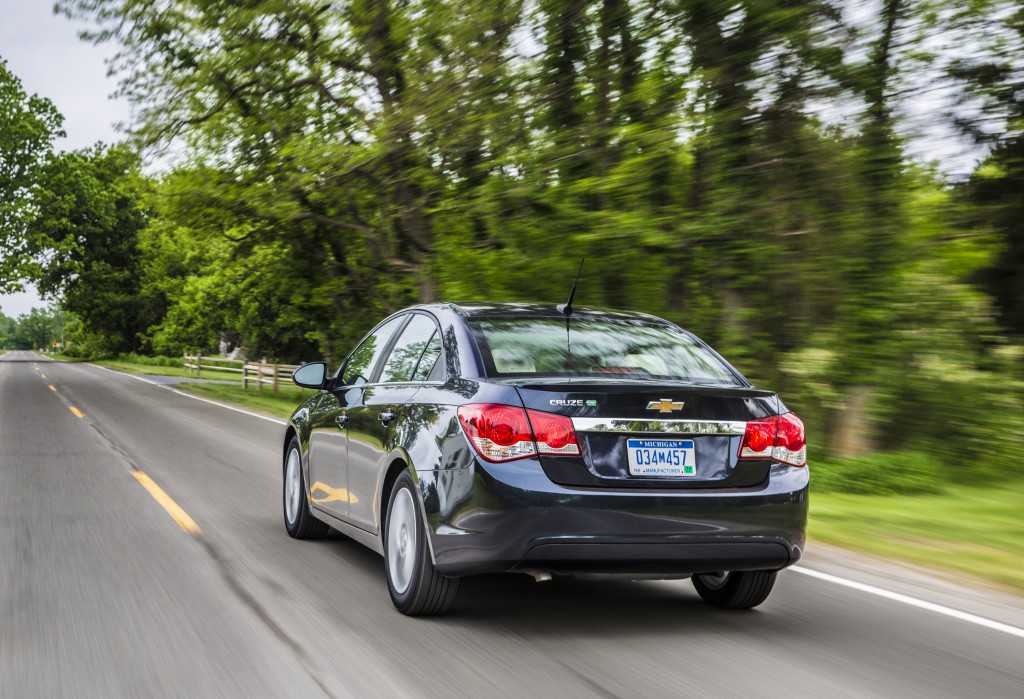
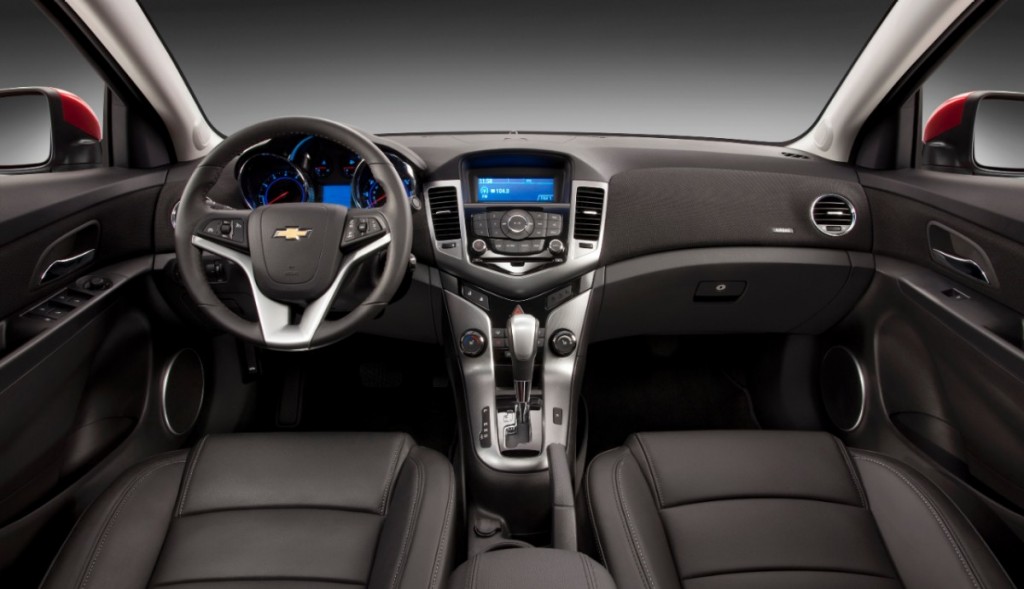
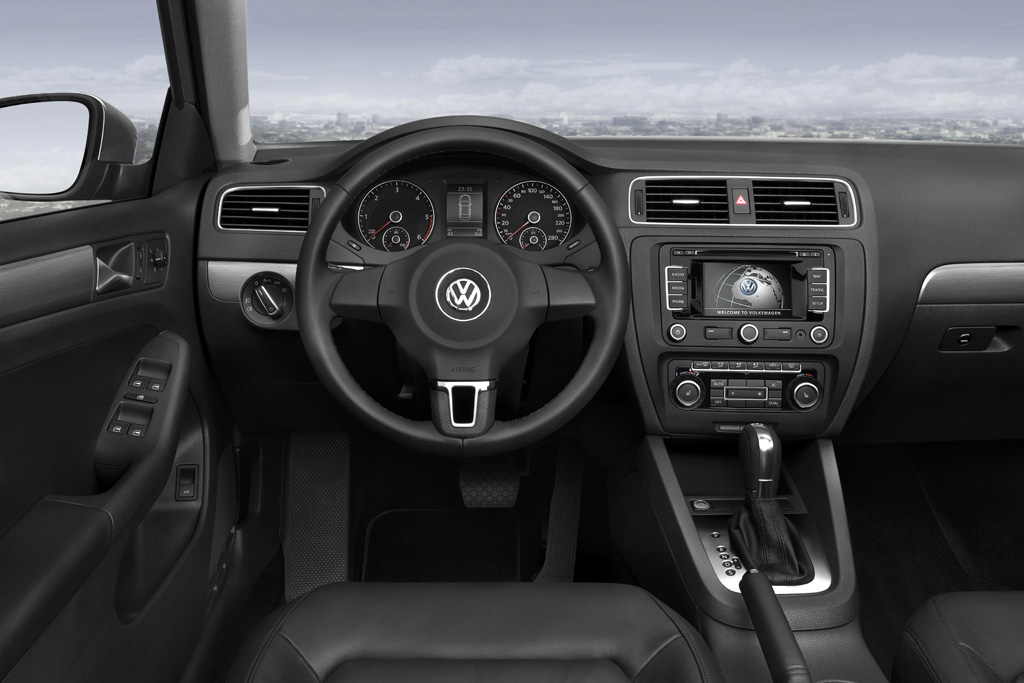
![[del.icio.us]](https://www.straight-six.com/wp-content/plugins/bookmarkify/delicious.png)
![[Digg]](https://www.straight-six.com/wp-content/plugins/bookmarkify/digg.png)
![[Facebook]](https://www.straight-six.com/wp-content/plugins/bookmarkify/facebook.png)
![[Google]](https://www.straight-six.com/wp-content/plugins/bookmarkify/google.png)
![[Reddit]](https://www.straight-six.com/wp-content/plugins/bookmarkify/reddit.png)
![[StumbleUpon]](https://www.straight-six.com/wp-content/plugins/bookmarkify/stumbleupon.png)
![[Twitter]](https://www.straight-six.com/wp-content/plugins/bookmarkify/twitter.png)
![[Email]](https://www.straight-six.com/wp-content/plugins/bookmarkify/email.png)